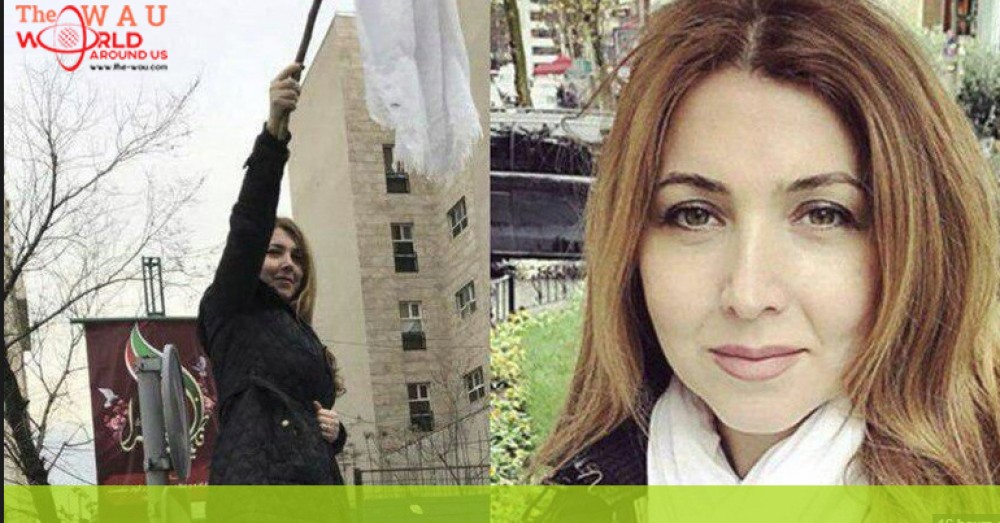An Iranian woman who protested the obligatory Islamic headscarf by removing it in public says she has been sentenced to 20 years in prison.
Shapark Shajarizadeh, 42, was arrested in February after she was filmed standing on a traffic island in the Iranian capital Tehran, while waving her headscarf around on the end of a stick.
This week, she posted on her personal website that she had been jailed for 'opposing the compulsory hijab' and 'waving a white flag of peace in the street.'
Shajarizadeh was released on bail in late April after Amnesty reported that she had been charged with 'inciting corruption and prostitution'.
Her current whereabouts are unknown, and there has been no immediate comment from Iranian officials.
In the month of February alone, Iranian police arrested 29 women for removing their headscarves in public as part of a campaign known as 'White Wednesdays.'
Nasrin Sotoudeh, a prominent human rights lawyer who represented Shajarizadeh and other women, was arrested last month.
The Islamic dress code, in place since the 1979 revolution, considers veiling obligatory for any female above 13 in Iran and says they should cover themselves from head to toe, while disavowing any figure-hugging clothes.
Breaking the rules can result in fines of up to 500,000 rials (£17) and up to two months in prison.
President Hassan Rouhani, who came to power in 2013 promising a more moderate stance, has previously said it is not the job of police to enforce religious rules such as those forcing women to cover their hair.
But in April 2016, officials said there were 7,000 undercover morality police reporting on things like 'bad hijab' - a blanket term usually referring to un-Islamic dress by women.
...[ Continue to next page ]
Share This Post















